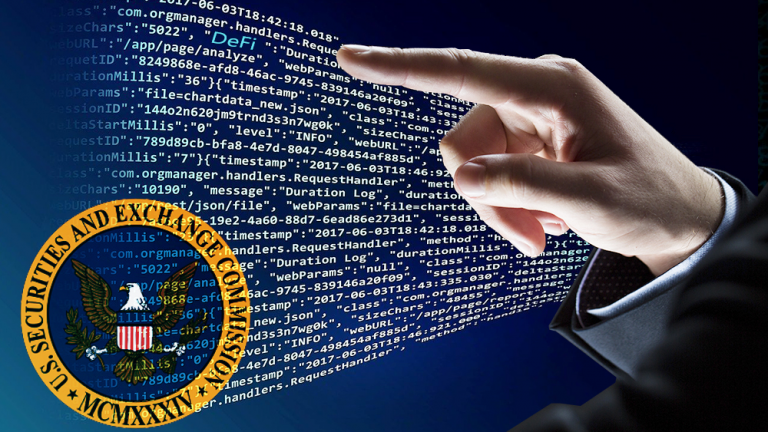
The SEC’s Crypto Task Force, led by Commissioner Hester Peirce, held its inaugural roundtable titled “How We Got Here and How We Get Out – Defining Security Status” at the SEC headquarters in Washington, D.C. During this event, Peirce expressed support for allowing non-fungible tokens (NFTs) to be used as a means of raising capital. This stance marks a significant shift in the SEC’s approach to NFTs, suggesting they could be exempted from traditional securities regulations under certain conditions. Peirce’s comments align with her broader goal of fostering a regulatory framework that provides clarity and encourages innovation in the crypto space, contrasting with the more enforcement-heavy approach of the previous administration.
The roundtable, part of a series aimed at engaging with the public and industry experts, reflects the Task Force’s efforts to redefine the regulatory treatment of digital assets, including exploring how NFTs could serve as a legitimate fundraising tool for crypto startups without being classified as securities. NFT (non-fungible token) regulations are a complex and evolving area, primarily because NFTs sit at the intersection of digital assets, intellectual property, and financial law. There’s no unified global framework for NFT regulation, so the rules depend heavily on jurisdiction, the nature of the NFT, and how it’s used.
In the U.S., the Securities and Exchange Commission (SEC) plays a key role in determining whether NFTs fall under securities laws. Historically, the SEC has applied the Howey Test to assess if an asset is a security: if it involves (1) an investment of money, (2) in a common enterprise, (3) with an expectation of profits, (4) derived from the efforts of others, it’s likely a security requiring registration or an exemption. Many NFTs—especially those tied to art, collectibles, or gaming—don’t meet this definition because they’re unique and not inherently investment vehicles. However, fractionalized NFTs (where ownership is split into tradable shares) or NFTs marketed with promises of future value increases have faced scrutiny as potential securities.
Register for Tekedia Mini-MBA edition 17 (June 9 – Sept 6, 2025) today for early bird discounts. Do annual for access to Blucera.com.
Tekedia AI in Business Masterclass opens registrations.
Join Tekedia Capital Syndicate and co-invest in great global startups.
Register to become a better CEO or Director with Tekedia CEO & Director Program.
Commissioner Hester Peirce’s statement, during the SEC Crypto Task Force roundtable, signals a shift. She advocated for NFTs to be used to raise capital, suggesting they could be structured in ways that avoid securities classification—perhaps as utility tokens or crowdfunding tools—while still offering regulatory clarity. This isn’t law yet, but it hints at a future where NFTs might get a safe harbor, similar to what Peirce has proposed for other crypto assets. The SEC’s focus seems to be moving toward distinguishing between speculative investment NFTs and those with practical utility, like representing ownership of real-world assets or access to services.
The IRS treats NFTs as property, meaning sales trigger capital gains taxes. Creators may also owe income tax on initial sales or royalties. Platforms trading NFTs may need to comply with the Bank Secrecy Act if they’re deemed money transmitters, especially with high-value transactions. The U.S. Copyright Office has flagged that owning an NFT doesn’t automatically grant copyright to the underlying asset unless explicitly stated, leading to legal disputes over usage rights. The EU’s Markets in Crypto-Assets (MiCA) regulation, fully in effect by late 2024, covers some NFTs but excludes those deemed “unique and not fungible” from its scope.
This means one-off art NFTs are largely unregulated but fractionalized or mass-issued NFTs (like a series with financial perks) might be classified as crypto-assets, requiring issuers to publish whitepapers and comply with AML rules. The EU focuses on consumer protection and market integrity, so NFT platforms must also adhere to GDPR for user data and ensure transparency in transactions. The UK considers NFTs on a case-by-case basis. If they resemble investment products, they fall under the Financial Conduct Authority’s purview. Otherwise, they’re treated as digital collectibles with minimal regulation.
Countries like Japan view NFTs as virtual assets under the Payment Services Act, requiring exchanges to register, while China has banned crypto trading but allows NFTs on state-approved blockchains for cultural purposes, sans financial speculation. Are NFTs securities, commodities, or something else? This determines which agency (SEC, CFTC, etc.) has jurisdiction. Wash trading, rug pulls, and fake NFT projects have prompted calls for stricter oversight globally. NFTs are borderless, but regulations aren’t, creating enforcement gaps.
Looking Ahead
Peirce’s push to let NFTs raise capital could inspire a U.S. framework where NFTs are treated as tools for creators and startups, not just speculative assets. This might involve a tailored exemption from securities laws, coupled with AML and consumer protection requirements. Globally, expect more clarity as regulators catch up to NFT use cases—think real estate tokenization, music royalties, or gaming economies. For now, creators and buyers must navigate a patchwork of rules, often consulting legal experts to stay compliant.


